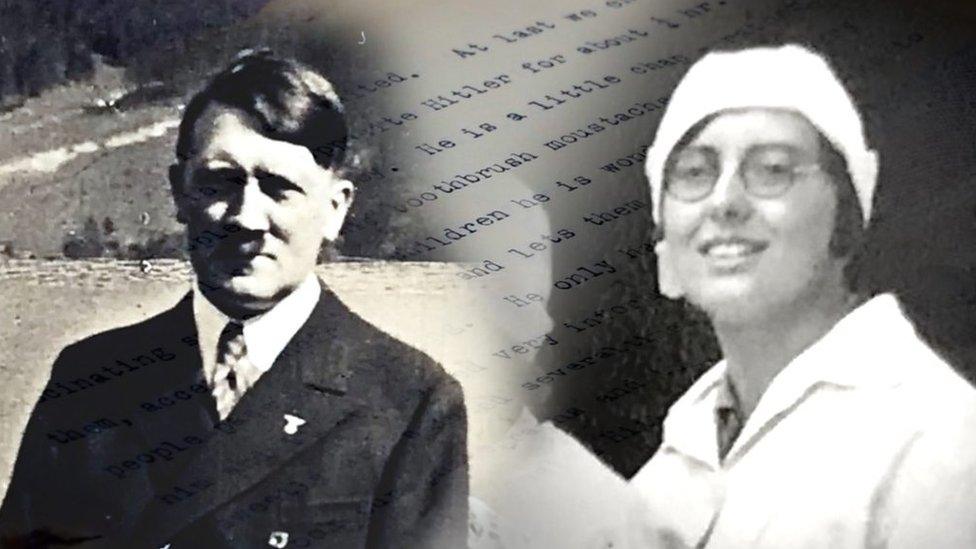Girlguiding: 'Covid forced us to embrace new technology'
- Published
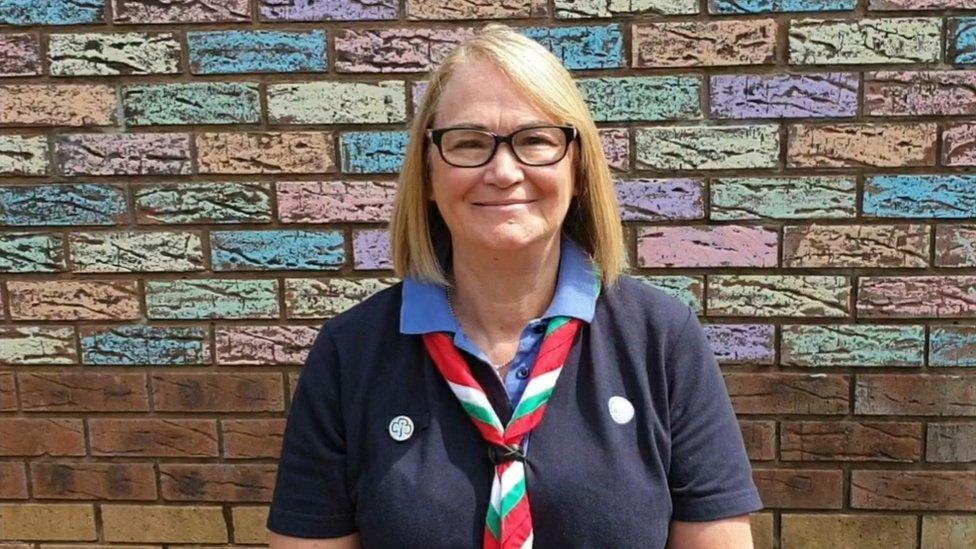
Guiding was not using technology "to its full potential" former Wales chief Lesley Mathews says
"Shutting down was the easiest thing in the world. When schools closed, within 24 hours we were shut down.
"It was the next stage that was the most difficult."
These are the words of Lesley Mathews, the chief commissioner of Girlguiding Cymru when the coronavirus pandemic turned the UK upside down in March 2020.
With about 14,000 young members and 4,000 section leaders in her charge, the former education welfare service manager knew she had a huge responsibility to act quickly to protect them from the virus sweeping the country.
Guides, Brownies, Rangers and Rainbow meetings came to an abrupt halt as children across Wales were confined to their homes.
But with life on hold and the realisation that life was not going to go back to normal any time soon, Lesley and her team at Girlguiding headquarters in Brecon had to rapidly devise a strategy to keep the sections going any way they could.
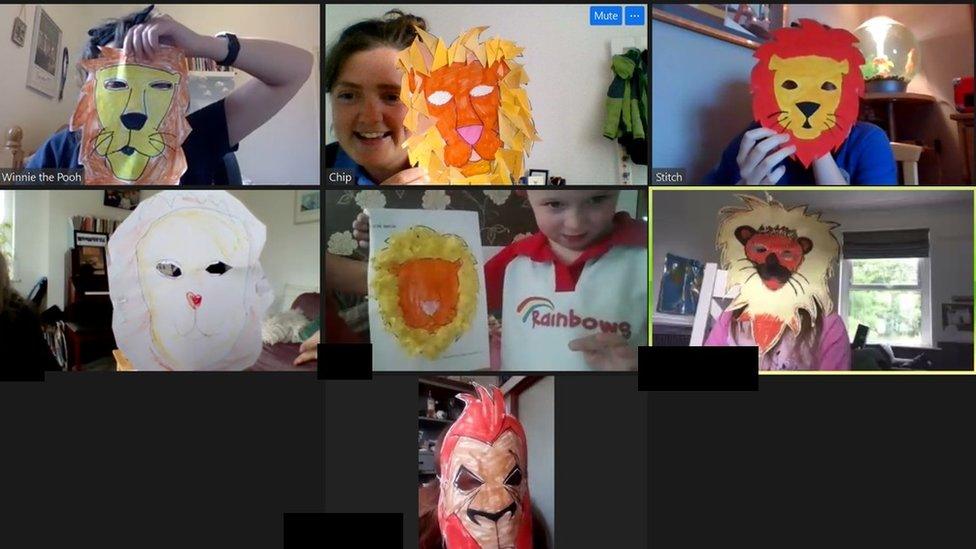
The 10th Ely Rainbows group held a virtual safari for one online session
How did Guiding cope with the pandemic?
Like the rest of the world, connecting online would be their saviour in the isolated months ahead.
Lesley said: "We gave them a bit of space for four or five weeks but when it started to go on and on, then we thought we have got to do something here.
"We adapted using the various online programmes. We wrote guides, we wrote policy, we taught people how to use Zoom and we encouraged leaders to hold Zoom meetings with their members."
Lesley said with leaders ranging in ages from 18 to 80 they had to be aware of the differing levels of tech skills and provide extra support for those that needed it, or provide girls with the chance to hook up with other units online if their own was not able to meet.
A third of their 4,000 leaders have received training in areas such as online safeguarding and have been quickly trained to lead in the digital age.
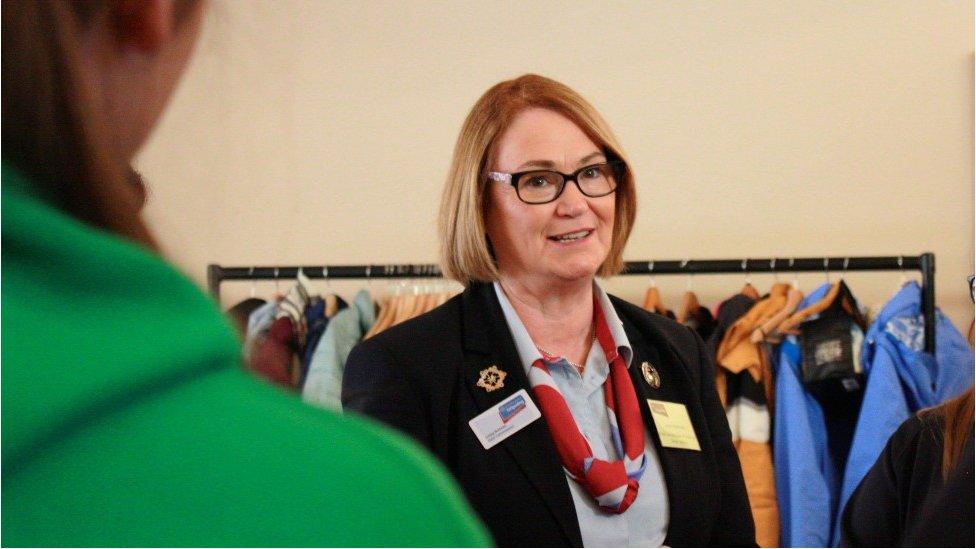
Lesley Mathews at Girlguiding Cymru's Strategy 2020 event
And there have been unexpected positives to come out of this enforced transformation, with a digital future firmly in Girlguiding's sights.
"Traditionally we have met up in a hall at a set time, and whilst girls need to do that, through the virtual form we can reach more people," Lesley said.
She described a virtual fun day hosted which saw 700 people drop in to take part.
"Going forward, it's going to be a blended guiding mix of virtual and face-to-face meeting. If we do a workshop in real life we might get 100 people, but online hundreds of people can take part.
"Technology has been there but we weren't using it to its full potential.
"Covid forced us to embrace these technologies."
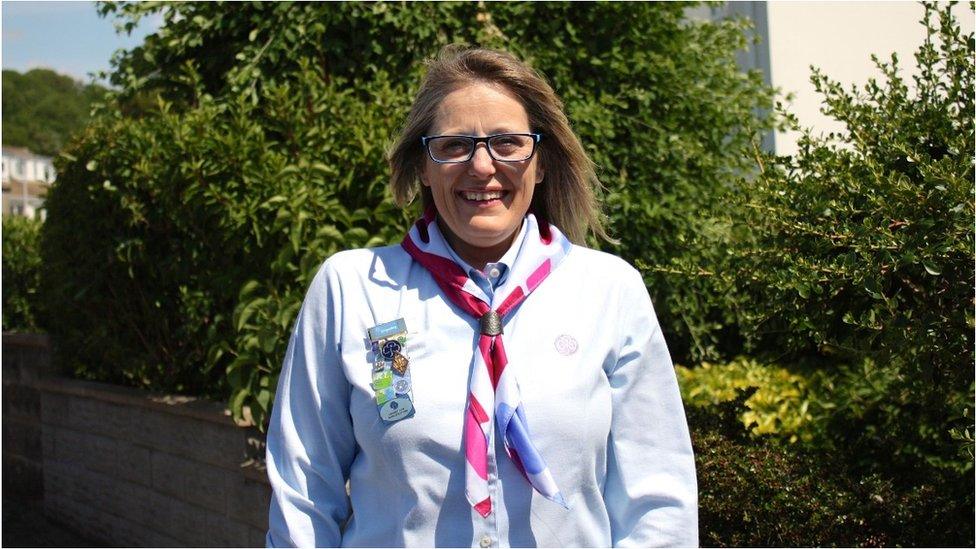
Sarah-Jane Burns has seen family engagement with groups rise in lockdown
It is not just the section meetings that benefited from being able to continue online. Lesley said the organisational heads actually found they were meeting more often than in normal times because the logistics of travelling to a venue from various parts of Wales were removed.
'We got through two world wars'
Having led Girlguiding Cymru through one of its greatest challenges, Lesley retired from her role in October, crossing over in her last months with incoming deputy chief commissioner Sarah-Jane Burns, who moved back to her home town of Porthcawl from Scotland on the day national lockdown was announced in March.
A former Brownie and Guide herself, Sarah-Jane has worked for the organisation for 10 years and a word she uses often in connection with it is resilient.
"We're over 100 years old and we got through two world wars," she said. "We adapted quite quickly [to coronavirus]. We have got quite a strong support network historically for leaders so that was there already."
Helped out by the donation of 8,000 premium Zoom accounts from the tech company to Girlguiding UK, Sarah-Jane said the leaders started off doing scavenger hunts around members' houses and ended up running virtual sleepovers.
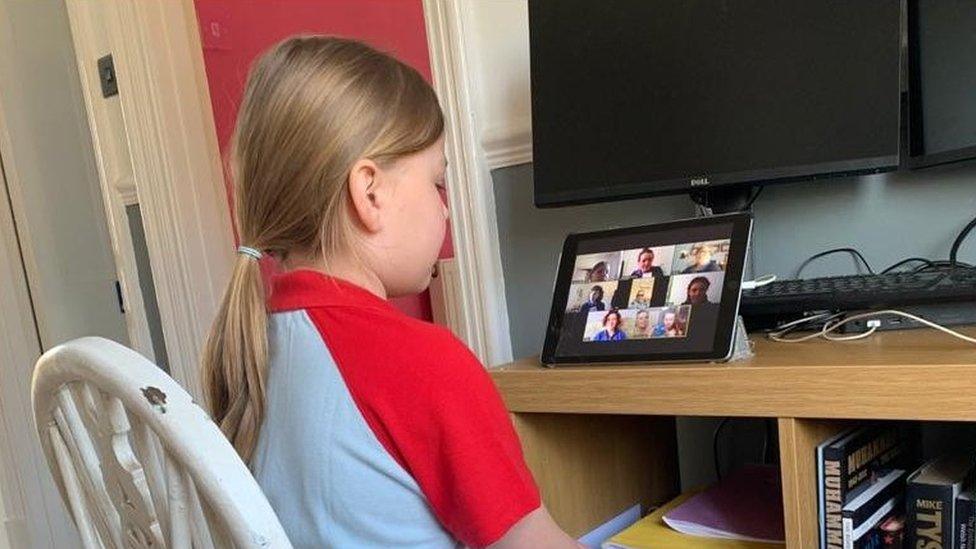
A Rainbow member taking part in a virtual session
"The girls have really enjoyed it, particularly during [the first] lockdown and being able to see friends. They really enjoyed having that weekly meeting.
"We have moved to blended meetings now. Some of the units are able to meet in person depending on what the venue is like. We've even put on a virtual pantomime."
One benefit of meetings being beamed into members' homes has been greater family involvement, she says, as a parent has had to be in the room for safeguarding reasons.
They have been able to really see what goes on in meetings and have had family members, including grandparents, joining in activities at times.
To this end, Girlguiding Cymru launched a special badge, the President's Challenge, which families can join in with and take part in activities.
How did coronavirus affect girls?
In May, the UK-wide Girlguiding body organised a survey of 7,000 girls, many of them members of a section, on how they were coping with the pandemic and its effects.
A mixed picture emerged. While some reported enjoying more family time and having the pressure of school removed, a third of girls aged four to 10 reporting feeling sad most of the time, a third of 11 to 14-year-olds felt lonely most of the time, and over 40% of 15 to 18-year-olds felt worried or stressed most of the time.
Two girls who fall into that last category say having their Rangers groups carrying on, especially through the first lockdown when schools were closed, has been a big help to their wellbeing.
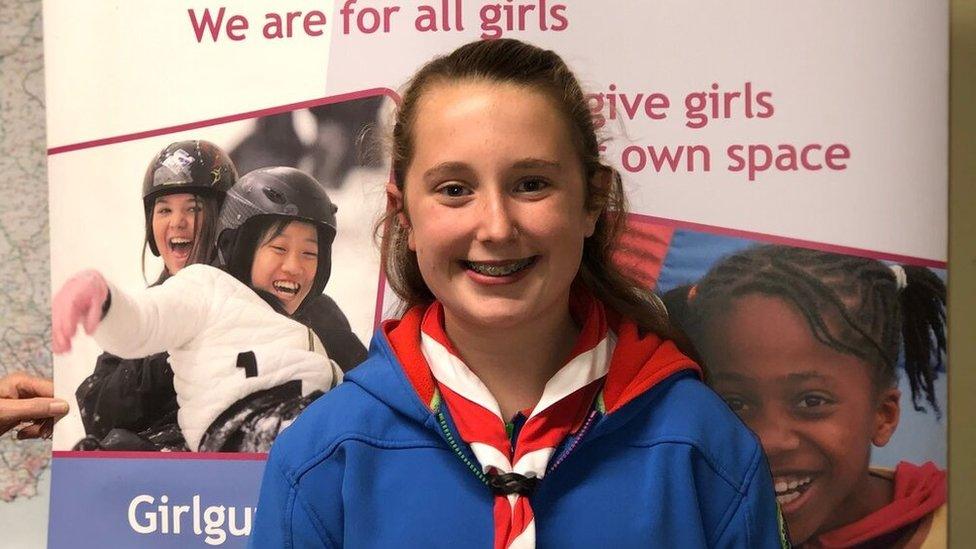
Nia-Rose has been involved with Girlguiding since she was six
Nia-Rose, 15, from Swansea, joined Rainbows aged six and has been through every level of Guiding, moving to her current group, about a year ago.
She also acts as a youth leader with the younger children.
When the pandemic hit, her weekly in-person meetings with up to 55 other Rangers and Guides were halted.
She said: "My leader was very, very good, very organised and we practically got online straightaway.
"We still carried on with cooking, badgework, games, but we've also done a couple of virtual sleepovers.
"We'll be sent packs of activities and then we'll log on to Zoom for a certain time slot and do these activities and games and we still get badges at the end." The group has also continued where possible with activities like the Duke of Edinburgh award.
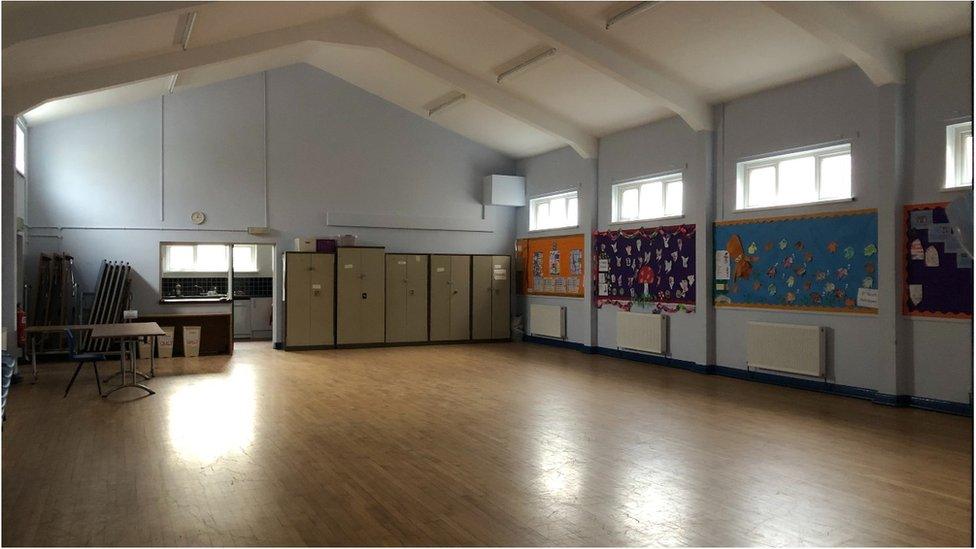
Digital sessions tided the groups over when halls like this one in Neath closed
Has she seen attendance drop off because of the pandemic? "I'd say in terms of the younger units like Rainbows and Brownies, they have all stayed with it and there's even been one set which have come in to Rainbows and Brownies which shocked me a bit.
"In terms of Guides and Rangers, I think there has been a decrease in numbers, however I think I've got to take into account that when you hit Rangers as well, you have a lot more school work and exams and the uncertainty of exams so I think perhaps people would have dropped out anyway even if we were meeting up.
"Because our unit has been so organised we've all stuck at it, the majority of us, whereas I know people at other units where perhaps they've had a couple of Zoom sessions maybe [have not]."
'It's a release'
Nia-Rose can see the benefit having an online activity available can bring, with children able to join from home for example, rather than parents driving them to meetings.
She can also see a role for virtual meetings on a wider geographical scale in the future and mentions how it has aided her over the past nine months in her role as a member of the Welsh Youth Parliament.
However she added: "I definitely prefer meeting face-to-face. But I know there have been people who have preferred Zoom meetings so I think it's personal preference."
Being a member during the pandemic has been "fantastic" in terms of helping her get through it, she says.
"Certain clubs, they can't do anything online, like swimming - how are you going to do that online, or other sport?
"I think it helps if you've still got that contact with other people apart from just your family and you still have contact with friends that you had in Rangers that you wouldn't necessarily see in school.
"It's a release, to focus on something else for an hour and a half."
'We felt quite lucky'
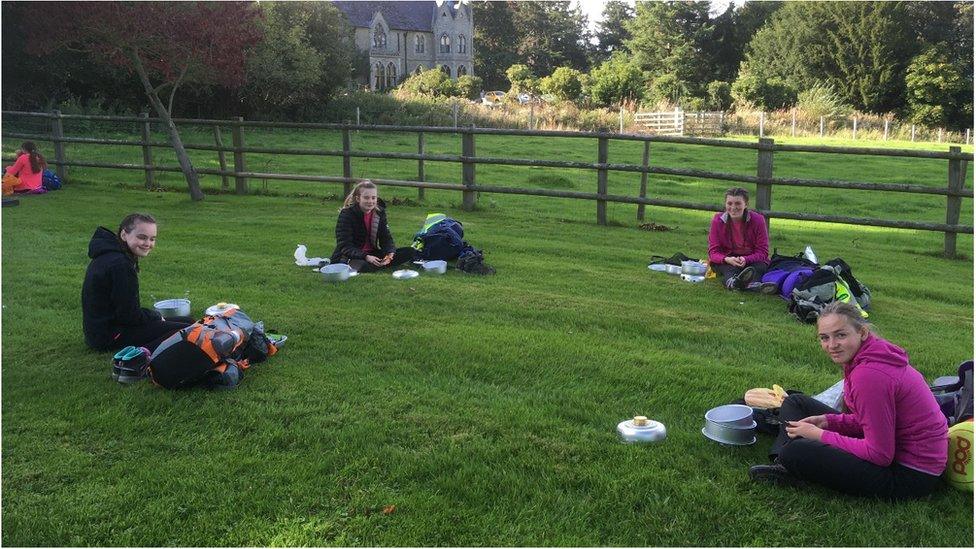
Rangers from Anais's Montgomery group doing the Duke of Edinburgh award in the summer
Anais has been similarly lucky with her 15-strong group.
"Pretty much as soon as we were told we were going into lockdown, we were quite lucky because our leaders organised Zoom calls and then [carried on] every week," the 17-year-old from Bridgetown, Powys, explained.
The group, used to carrying out skills challenges and being quite physically active, nevertheless managed to adapt to suit the online medium.
"We've managed to do a lot of activities," Anais said. "Movie night, Netflix parties, cooking at home so we'd all make the same thing while on Zoom.
"We also had first aid class. We did quizzes and things at the end of the session. We managed to speak to our local MP for the UK Parliament week as well, which was really good."
She says the online experience was "quite different", adding: "We all said we missed meeting up face-to-face because there are some limitations, but then also we felt quite lucky during lockdown to be able to do all the activities that we were, because it kept us busy.
"It was nice to have a group and a range of ages because we all got on quite well. It was a structure."
- Published2 September 2020

- Published9 January 2020

- Published19 September 2017
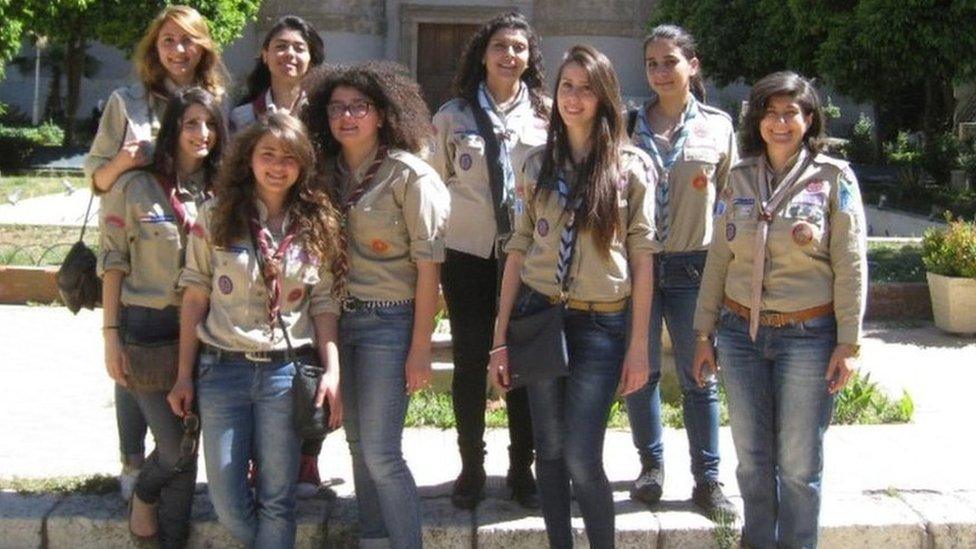
- Published25 June 2020
